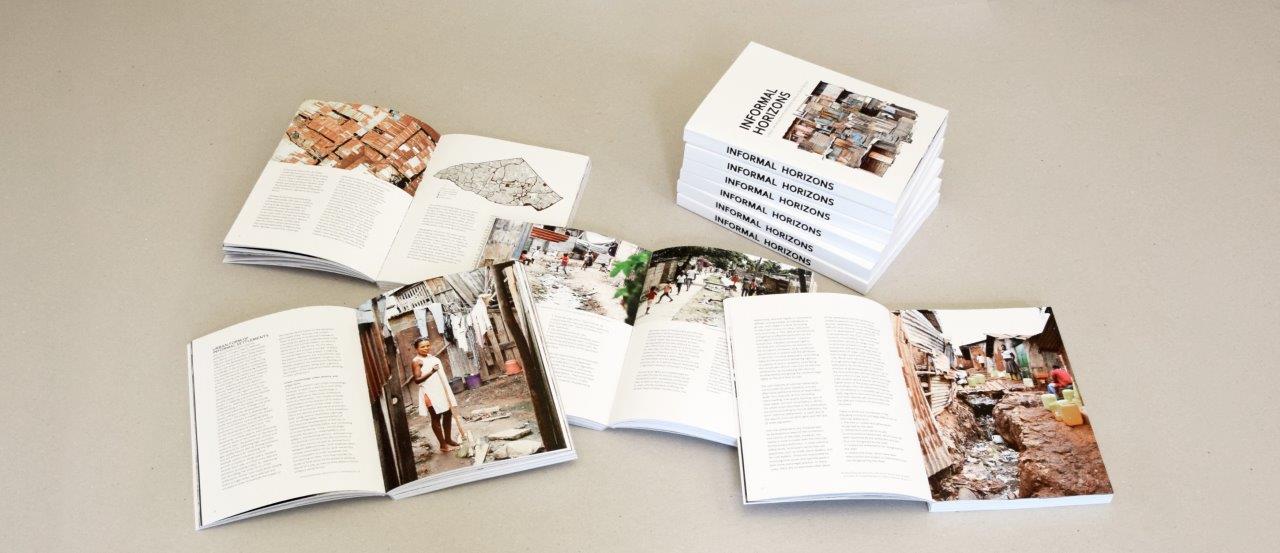
The majority of the ongoing extensive urbanization of East Africa is informal and occurs beyond the limits of state control and regulatory systems. This development is characterized by lack of urban planning, infrastructure provision, and formal rights to the land. Lack of land rights constitutes a major issue within urban development in East Africa, as it leads to forced evictions as well as exclusion from public services and citizenship, compromising sustainable development for millions of urban dwellers across the region.
This publication is called Informal Horizons as the future of African cities is informal and as many African cities are characterized by vast peripheral informal settlements extending towards the horizon. It contains information on current efforts to counter issues relating to informal land ownership in East Africa, along with research on the underlying structures conditioning the informal urban growth. This includes projects by the NGO, Architects without Borders – Denmark, addressing issues with land rights in Uganda and Mozambique. Additionally, this publication contains material from the KADK-based research project, Understanding Urban Form of Informal Settlements in East Africa, which is currently examining issues related to the informal urban development in the region, in order to improve the basis for developing effective urban planning interventions and policies for such areas. The first three chapters focus on the background, historical context, and current issues confronting the urbanization of the region, while the final three chapters present projects by Architects without Borders – Denmark, seeking to address issues with land rights and urban poverty through architectural and urban planning interventions. Informal Horizons seeks to synthesize these efforts to improve our understanding of the ongoing extensive urbanization processes in East Africa and showcase current attempts at transforming informal settlements into sustainable neighborhoods.
The project was carried out in collaboration with KADK – The Royal Danish Academy of Fine Arts Schools of Architecture, Design and Conservation and Architects without Borders – Denmark.